[Bacillus]Microbial flora, probiotics, Bacillus subtilis and the search for a long and healthy human longevity
- e 2125
Microbial flora, probiotics, Bacillus subtilis and the search for a
long and healthy human longevity
Facundo Rodriguez Ayala, Carlos Bauman, Sebastián Cogliati, Cecilia Leñini, Marco Bartolini and Roberto Grau*
Abstract
administered or present in adequate quantities. However, the mechanisms by which probiotics stimulate host longevity remain unclear and very poorly understood. In a recent study (Nat. Commun. 8, 14332 (2017) doi: 10.1038/ncomms 14332), we used the spore-forming probiotic bacterium Bacillus subtilis and the model organism Caenorhabditis elegans to study the mechanism by which a probiotic bacterium affects host longevity. We found that biofilm-proficient B. subtilis colonized the C. elegans gut and extended the worm lifespan significantly longer than did biofilm-deficient isogenic strains. In addition to biofilm proficiency, the quorum-sensing pentapeptide CSF and nitric oxide (NO) represent the entire B. subtilis repertoire responsible for the extended longevity of C. elegans. B. subtilis grown under biofilm- supporting conditions synthesized higher levels of NO and CSF than under planktonic growth conditions, emphasizing the key role of the biofilm in slowing host aging. Significantly, the prolongevity effect of B. subtilis was primarily due to a downregulation of the insulin-like signaling system that precisely is a key partaker in the healthy longevity of human centenarians. These findings open the possibility to test if the regular consumption of B. subtilis incorporated in foods and beverages could significantly extend human life expectancy and contribute to stop the development of age-related diseases. |
제목 Microbial flora, probiotics, Bacillus subtilis and the search for a long and healthy human longevity 내용 Probiotics는 적절한 양으로 투여되거나 존재할 때 수명연장 등의 숙주의 건강에 유익한 효과를 나타내는 살아있는 미생물 이다. 그러나, probiotics가 숙주 수명을 자극하는 메커니즘은 불분명하고 매우 잘 이해되지 않고 있다. 최근의 연구(Nat. Commun. 8, 14332 (2017) doi : 10.1038 / ncomms14332)에서 우리는 포자 형성 세균인 Bacillus subtilis와 모델 유기체 Caenorhabditis elegans(예쁜꼬마선충)를 사용하여 probiotics가 박테리아가 숙주 수명에 영향을 주는 기전을 연구했다 . 우리는 biofilm-proficient B.subtilis가 C.elegans 내장을 군체화한 것이 biofilm이 적은 동질유전자 C.elegans 보다 수명을 현저히 연장 시켰음을 발견했다. biofilm 외에도 쿼럼 센싱 펜타펩타이드 CSF와 산화질소(NO)는 C.elegans의 연장 된 수명을 담당하는 B.subtilis 레퍼토리를 나타낸다. Biofilm-supporting 조건 하에서 성장한 B.subtilis는 플랑크톤 성장 조건보다 높은 NO와 CSF를 합성하였으며, 이것은 노화를 늦추는 데 있어 biofilm의 핵심적인 역할을 나타내는 것이다. 중요한 것은, B.subtilis의 수명 연장 효과는 인류의 100세 건강한 장수에 중요한 역할을 하는 인슐린 유사 신호 체계의 하향 조절 때문이다. 이 결과는 음식과 음료에 함유 된 B.subtilis의 규칙적인 섭취가 인간의 기대 수명을 크게 연장시키고 노화와 관련된 질병의 발달을 멈추게 할 수 있는지를 시험 할 가능성을 열어 준다. 예쁜꼬마선충(Caenorhabditis elegans)은 선형동물의 일종이다. 썩은 식물체에서 서식하며 투명한 몸을 가지고 있고 몸의 길이는 1mm정도이다. 꼬마 선충이 가지고 있는 여러 가지 특징들 때문에 다세포 생물의 발생, 세포생물학, 신경생물학, 노화 등의 연구에서 모델 생물로서 많이 연구된다. 대부분의 경우, 꼬마 선충과 인간의 질병과는 직접적인 연관은 없지만 여러 가지 변인들을 통제하기 쉽고 빠른 결과를 얻을 수 있기 때문에 사용된다. 또한 인간과 꼬마 선충의 유전자를 비교한 결과 60~80%정도의 유전자가 비슷하다는 것이 밝혀졌다. 인간 질병에 관련된 유전자의 533개가 꼬마 선충의 유전자에서 발견되었으며 이는 꼬마 선충에 대한 연구가 인간의 질병 연구로도 이어질 수 있음을 시사한다. [출처 : OPEN ACCESS | Microbial Cell | April 2017 | Vol. 4 No. 4 ] |
| no. | 제목 | 조회수 |
|---|
| 20 | 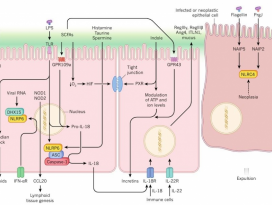 | 2082 | |
| 19 | 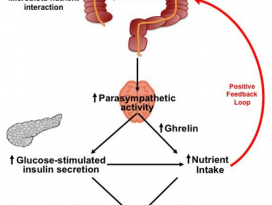 | [Gut Microbiome] Acetate mediates a microbiome–brain–β cell axis to promote metabolic syndrome | 2202 |
| 18 | 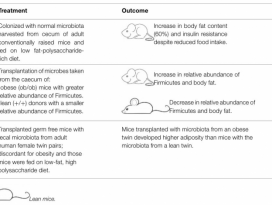 | 2031 | |
| 17 | 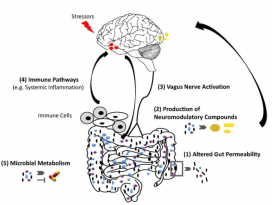 | [Gut Microbiome] The Gut Microbiome in Human Neurological Disease: A Review | 2535 |
| 16 | 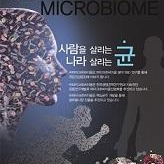 | [Gut Microbiome] Rapidly expanding knowledge on the role of the gut microbiome in health and disease | 2180 |
| 15 |  | 2222 | |
| 14 |  | 2415 | |
| 13 |  | 2359 | |
| 12 |  | 2441 | |
| 11 |  | 2459 | |
| 10 |  | [Bacillus] Anti-influenza Activity of a Bacillus subtilis Probiotic Strain | 2119 |
| 9 |  | [Bacillus] Aflatoxin B1 degradation by Bacillus subtilis UTBSP1 isolated from pistachio nuts of Iran | 2272 |
| 8 |  | 2349 | |
| 7 |  | 3239 | |
| 6 |  | 2125 | |
| 5 |  | 2339 | |
| 4 |  | 2297 | |
| 3 |  | 2111 | |
| 2 |  | 2077 | |
| 1 |  | 2402 |
㈜마이크로바이옴 ㅣ 서울시 서대문구 연희로 77-12 영화빌딩2층
Tel :02-322-0302 l Fax : 02-322-0759
Copyright (c) Microbiome. Co. All Rights Reserved.